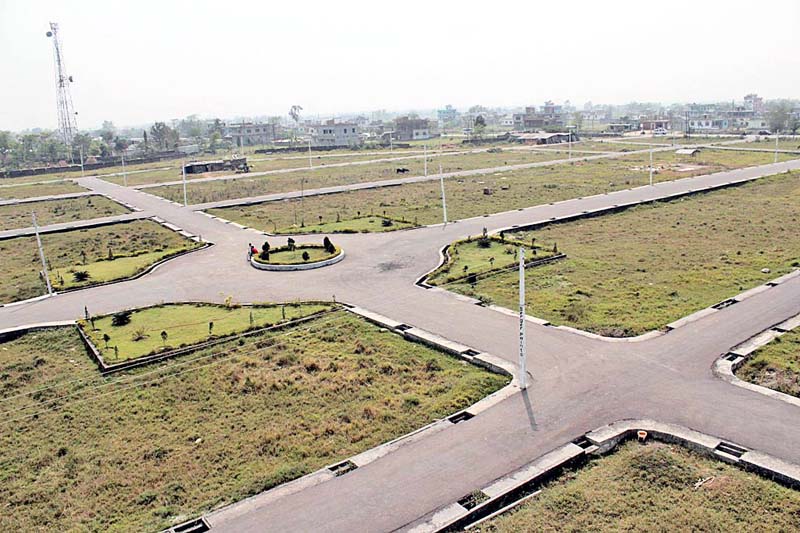Stakeholders oppose land bill
Land bill slammed for giving too little to landless, encouraging deforestation and allowing industries to sell land
Kathmandu, September 14
Stakeholders have opposed the new Land Management (Eighth Amendment) Bill saying its provisions will neither do justice to landless people nor bring the required reforms in land management.
The bill, passed by the House of Representatives recently, is under consideration in the Upper House of Parliament.
Society Welfare Action Nepal Chairperson Krishna Chaudhary said at an interaction today the bill’s stipulation that the government would provide five kattha land to landless people
in the Tarai would not enable them to sustain their livelihood.
He said the Upper House had the option of amending the bill to provide at least 10 kattha land to landless people in the Tarai. “In Dang, many landless families have built houses on government land and they also till government land. If the bill’s provision is applied, they will only get the land where they have built houses, but lose the land they have been using for decades for their livelihood,” Chaudhary added.
Advocate Bhim Pariyar of Justice and Rights Institute Nepal said the government should allow landless people to own the land they had been tilling as land rights was crucial for their empowerment.
Brikhesh Chandra Lal of Rastriya Janata Party-Nepal, also a member of the Upper House of Parliament, told THT that the federal government did not have power to bring land management bill as it was under the jurisdiction of the provincial government. As per the schedule of the constitution, only local governments can issue land ownership certificates to people,” he added.
Lal said the bill’s provision granting unmanaged settlers ownership of occupied land for a fee was not justifiable because some people had built multi-storey houses in the hope of getting ownership of those land plots one day.
He said the government’s proposal of giving landownership to unmanaged settlers had led to increased encroachment of forest land in Morang and similar problems might arise in other forests also. Those people who have built multi-storey buildings in forest land should not be given land ownership as that could increase deforestation, Lal argued.
He said the HoR had amended the original bill to allow unmanaged settlers to get ownership of not only their houses but also the land they had been cultivating. “The government had brought the land bill to consolidate its vote bank,” Lal added.
Lal said the new bill would allow industries to sell industrial land. “If industry owners are allowed to sell industrial land, they will sell their land rather than focus on running
their industries because land prices go up very often,” he argued.
Lawmaker Radhe Shyam Adhikari, who represents the Nepali Congress in the Upper House, said those industries or tea estates or any such entities that were allowed excess land for the stated purpose should not be allowed to sell such land. “Owners of industries or tea estates should return excess land if they cannot use those land plots for the stated purpose,” he added.






